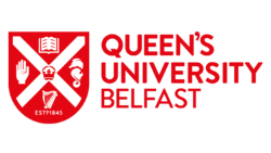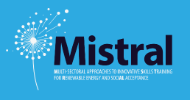Senni Määttä

Senni was an Early Stage Researcher in the School of Planning at Queen's University Belfast. She is now a post-doctoral researcher at Radbout University in The Netherlands, working as a researcher in the Calby2030 project. Her work focuses on societal aspects of industrial decarbonization through carbon capture and storage, and analysis of stakeholder dynamics (link to Senni's profile).
Governmentality of Public Participation in Renewable Energy
Project keywords: social acceptance, renewable energy, governmentality, power dynamics, interactions, processes
The energy system transition requires a radical transformation of the energy system. These changes reach out to individuals’ everyday lives, making them key stakeholders in the transition instead of actors merely impacted by the transition. As the energy transition is not possible without the involvement of the public, questions over who participates (or does not, or cannot) and who benefits from the transition are not just moral considerations but also questions over the effectiveness of the transition. The main aim of this research was to evaluate emerging governance arrangements that facilitate public involvement in the energy transition. It examined key discourses and multiple stakeholder perspectives in two case studies (Scotland and Ireland) and analysed these using a governmentality approach.
This resulted in the identification of several challenges to public involvement. The challenges include a deficit framing of the public, and how this can hinder public participation in decision-making processes. Another key challenge came from the mismatch of setting the public in the idealised role of charitable actors working for the common good, and the capacity challenges and increasing responsibilities given to the public. Some of the discourses also highlighted a lack of a systemic approach. The discourses around language gave a clear example of this, as the focus was often on the problematisation of the lack of expertise of the public instead of problematising the language being insufficient for a wide range of audiences. Lastly, the discourses also indicated some resistance to public involvement as was evident in the discourses around participation, community benefits and shared ownership.
The research also contributes to understanding of wider implications for public participation in the energy transition. Firstly, the results of the study indicate that the adoption of the ‘charitable actor’ framing for public participation can hinder society-wide involvement. This raises questions about the feasibility of the EU-wide approach to public participation represented for example in the REDII directive, and how well it fits with the systemic nature of the challenge. EU directives have called for seeing public participation as action aiming for the environmental, economic, and social benefit of the community instead of financial benefit. At the same time, public participation in the energy transition often relies on volunteer actors and faces many capacity challenges.
Secondly, the challenges and resistance to public participation indicate more fundamental structural challenges to public participation, stemming from the neoliberal energy system. Without a more fundamental transition of the neoliberalist rationalities of the transition, society-wide participation or recognition of the collective nature of the crisis and the implications this will not be achieved. Seeing the public in a key stakeholder role, and securing true inclusivity, do not fit with the dominant neoliberal rationalities of accepting the division of actors into winners and losers. In the collective challenge of climate change, exclusion results in a lack of action, which will result in negative impacts on everyone.
My research has advanced a dynamic understanding of social acceptance as well as reimagining the role of the public through involvement instead of as actors who are merely impacted by the energy transition. I have advanced a novel governmentality analytical tool, interplay, which provides a way to analyse dynamics between stakeholders.

Find out more about Senni's work
3 minute project introduction

